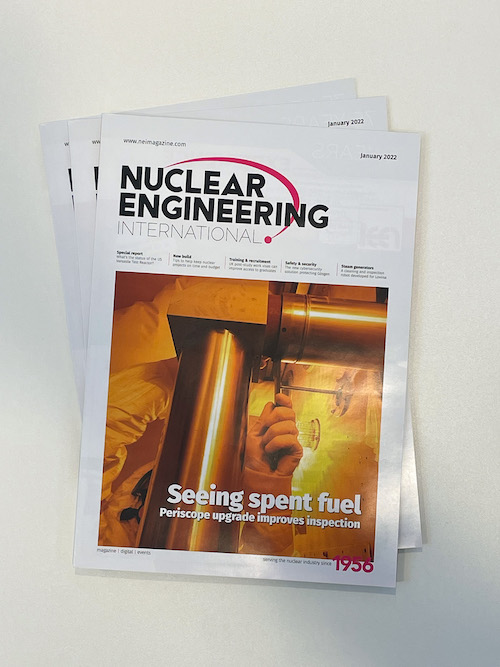
Studsvik nuclear aims to improve nuclear reactor performance – this to reduce risks and costs related to nuclear and radioactive materials. Since Studsvik is the only fully commercial lab performing analysis of highly radioactive materials, they must increase the quality of its services continuously to remain at a highly rated international position. DVel is one of Studsvik’s partners, delivering custom equipment needed for the material testing and inspection. DVel’s expertise help Studsvik continuously improve the functionality of its equipment and systems.
In 2020, Studsvik decided to upgrade and replace parts of the periscope equipment used for visual inspection of nuclear fuel rods and other highly radioactive materials. This is one of the most utilized equipment in the laboratory. With the previous periscope equipment, the inspection of a single fuel rod could take several hours, because of the manual handling of an operator. The result also became operator dependent. To make the measurement system more flexible it was decided that the translation stage should be replaced enabling a fully automatic inspection of fuel rods, including a highly automated image collection. The time required to image a one-meter fuel segment has been reduced from several hours to about 30 minutes.
The new inspection system does not only secure their continued operation, but Studsvik’s measurement capacity is also significantly increased since many of the new system features are automated. As the precise functionality evolved throughout the project, with several advanced features added at a late stage, the close cooperation between Studsvik and DVel was of great importance.
The close collaboration between Studsvik and DVel will continue to help Studsvik evolving its solutions. We at DVel help Studsvik by suggesting innovative ideas and contribute to on-going discussions to help them solve their problems.
“Companies like DVel, with experience from many different industries, can bring a valuable outside perspective on technical challenges within the nuclear industry.”
The entire article can be read in the journal Nuclear Engineering International, January 2022.
To view your sample issue, sign up here.

Riki Virc
VD
